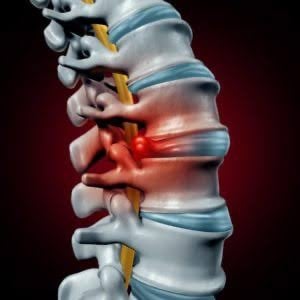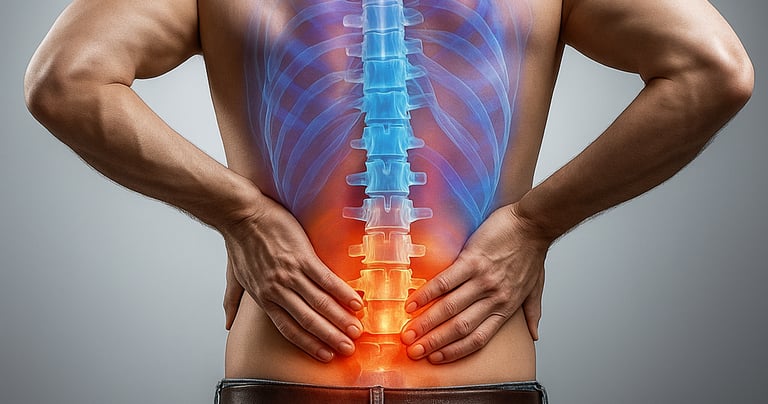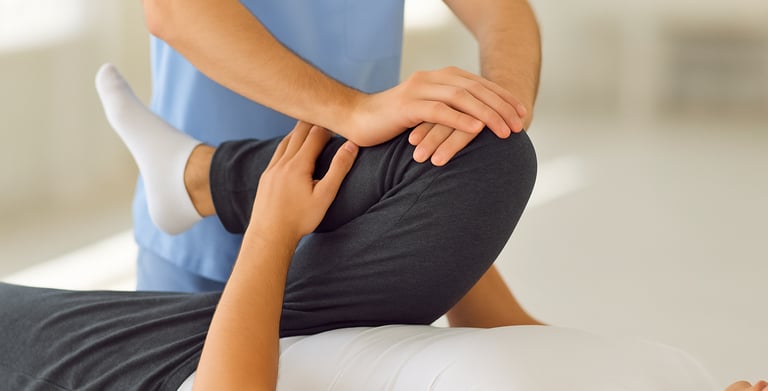Expert Physiotherapy Care for Lasting Relief
What is Spinal Stenosis?
Spinal stenosis is a condition where the spaces within the spine narrow, putting pressure on the spinal cord and nerves. It most commonly affects the lower back (lumbar stenosis) and neck (cervical stenosis), leading to pain, numbness, weakness, or difficulty walking.
This condition typically results from age-related changes in the spine, but can also develop due to injury, arthritis, or structural abnormalities.
Common Causes of Spinal Stenosis
Degenerative disc disease
Osteoarthritis or bone spurs
Thickened ligaments or joint swelling
Herniated or bulging discs
Spinal trauma or post-surgical changes
Congenital spinal canal narrowing
Common Signs and Symptoms
Symptoms depend on the area of the spine affected:
Cervical (Neck) Stenosis
Neck pain or stiffness
Tingling, numbness, or weakness in the arms or hands
Difficulty with coordination or balance
Lumbar (Lower Back) Stenosis
Lower back pain
Sciatica (radiating leg pain)
Numbness or weakness in the legs
Difficulty walking or standing for long
Relief when bending forward or sitting
Best Spinal Stenosis Treatment at Home
- in Gurugram & Delhi NCR




Diagnosis at Myo Physio at Home
Our at-home physiotherapy evaluation includes:
Detailed medical history and symptom review
Posture and gait analysis
Range of motion and strength testing
Neurological screening (reflexes, sensation, motor control)
Special tests for nerve compression
Recommendation for imaging (MRI/CT) if required
Physiotherapy Treatment for Spinal Stenosis
We focus on non-surgical, conservative management that helps relieve nerve compression, improve mobility, and restore strength.
Pain Management
Cold or heat therapy depending on symptom phase
TENS or IFT for nerve-related pain
Gentle manual therapy to reduce stiffness
Mobility and Flexibility Training
Guided stretching of tight muscles and joints
Spinal mobility and segmental movement exercises
Pelvic tilt and flexion-based routines (McKenzie or Williams protocols)
Strengthening Exercises
Core stabilization (abdominals, back extensors)
Gluteal and hip muscle strengthening
Postural muscle re-education
Progressive resistance and endurance programs
Gait and Balance Retraining
Walking drills for stability and endurance
Step training, heel-toe walking, and stair climbing
Balance improvement exercises to reduce fall risk
Posture and Ergonomic Corrections
Standing, sitting, and sleeping position guidance
Advice for safe bending, lifting, and walking
Home setup and furniture modifications


Preventive and Corrective Measures
Maintain proper spinal posture during daily activities
Strengthen the core, back, and hip muscles regularly
Avoid prolonged sitting or standing in one position
Use supportive chairs with lumbar support
Practice regular walking with posture awareness
Modify activities that strain the spine
Follow a structured home exercise program
Receive routine physiotherapy checkups for maintenance
Frequently Asked Questions (FAQ)
1.Is spinal stenosis permanent?
While structural changes may be permanent, symptoms can be managed or reversed with the right physiotherapy.
2.Will I need surgery?
In most cases, physiotherapy is effective in managing symptoms. Surgery is only considered if conservative treatment fails.
3.How long does recovery take?
Improvement can begin within 3–6 weeks. Chronic cases may require longer, depending on severity and patient commitment.
Can I exercise with spinal stenosis?
Yes. Controlled, low-impact exercises designed by a physiotherapist are essential for recovery.
Why Choose Myo Physio at Home?
Personalized care delivered at your doorstep
Certified physiotherapists with spinal rehab experience
Advanced pain relief techniques without medications
Convenient scheduling and zero travel hassle
Serving Gurugram, Delhi NCR, Noida, and Faridabad
Areas We Serve
Gurugram
Delhi NCR
Noida
Faridabad
Get in touch
Quick Links
Health
Recovery
myophysio312@gmail.com
+919811527312
+918810530087
© 2025. All rights reserved. - Myo Physio At Home


